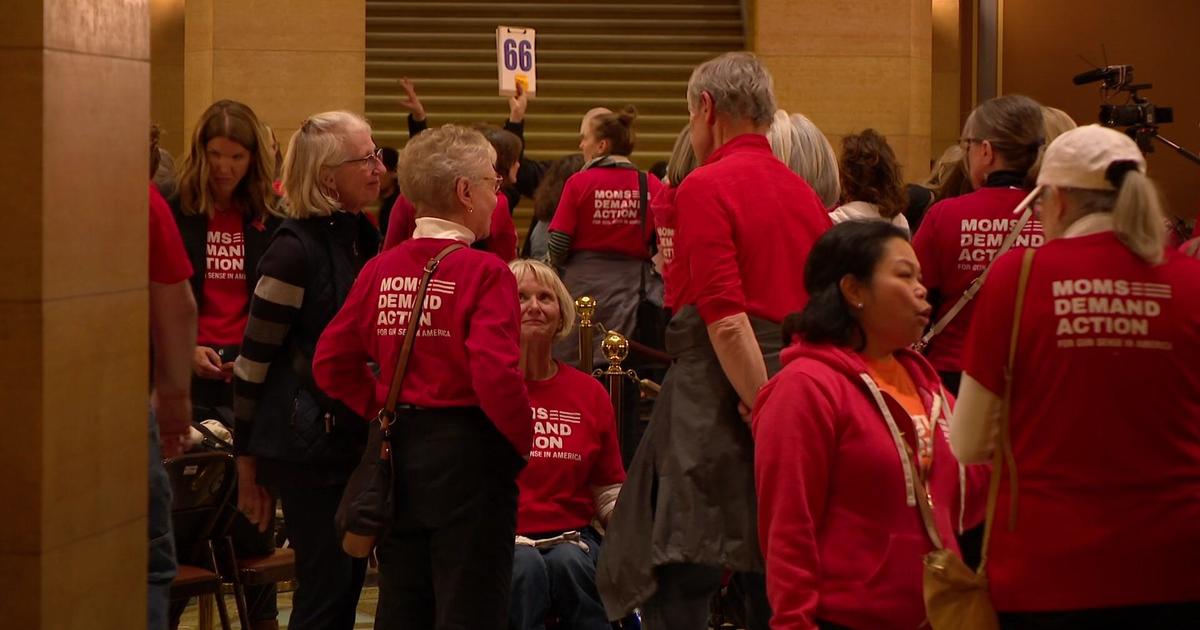In Gov Race, Different Views On Incentive Programs
ST. PAUL, Minn. (AP) — Bursting at the seams, executives at surgical device maker Cardiovascular Systems Inc. knew they needed to double their physical space and double their workforce. The big question was where.
After scoping dozens of sites, including four outside of Minnesota, the firm landed close to home in New Brighton amid a pocket of north suburban med-tech companies. The new 125,000-square-foot corporate and manufacturing hub isn't done yet, but hiring of skilled workers earning an average of $40 per hour has begun.
It's happening thanks in part to $2.75 million in state loans and grants plus a healthy dose of city assistance. But there's a catch: To unlock much of the state money, the company first must follow through on a pledge to gradually add 200 new employees at the $30 million plant.
"It helped make our decision to stay here easier," Cardiovascular Systems corporate communications director Jack Nielsen said of the incentive package.
Similar deals have been inked across Minnesota lately involving both homegrown firms and out-of-state recruits, many eagerly touted by Democratic Gov. Mark Dayton's administration as proof government can play a key role in priming economic development. His Republican challenger, Hennepin County Commissioner Jeff Johnson, argues it says more about softness in the state's economy and trouble with its business climate that subsidies are so pivotal.
As Dayton tries for a second term, his handling of Minnesota's economy is a central issue. The governor is adamant that a turnaround on his watch is undeniable and that more jobs are on the way, helped along by incentive programs like the new $24 million Minnesota Job Creation Fund and a supersizing of the loan-based Minnesota Investment Fund he helped launch 30 years ago.
"It's not welfare," Dayton told The Associated Press in an interview. "They're doing something in return for the assistance we are providing. They're providing jobs."
In the new program's first eight months, state officials have committed nearly $12 million to 20 companies. Those companies, in turn, have promised to add at least 1,300 people to their payrolls and put $224 million into capital expansions. Awards can be up to $2 million, but few reach even half that. The more the new jobs pay — salaries must be at least $26,000 per year — the bigger the potential rebate for companies.
And compared to the predecessor JOBZ program, which gave qualifying companies years of tax-free status in designated distressed zones, the new one requires more proof that jobs are created and held in place for at least a year.
"We want to be supportive of the expansions," said Department of Employment and Economic Development Commissioner Katie Clark Sieben, a Dayton appointee. "But it also has a great balance of no money leaves the state until we know for sure that a company has met those goals."
According to Pew Charitable Trusts researchers, each state has at least one tax incentive program for economic development — and most have several — that gobble up billions of combined tax dollars per year. Studies of some states' programs have found instances where subsidies cost taxpayers tens of thousands of dollars per job or simply rewarded companies for jobs they would add regardless.
At Good Jobs First, a left-leaning think tank that has produced reports skeptical of such programs, executive director Greg LeRoy has detected a shift toward pay-for-performance designs.
"At least you're smart enough to calibrate them to outcomes so you're not paying companies for jobs that don't get created," LeRoy said. "They do reduce risk, but they still don't get at the core issue of whether the incentive is really an incentive that causes something to happen that wouldn't happen anyway."
The GOP's Johnson said he's not sure whether he would keep the programs started or beefed up under Dayton. Johnson said he is uncomfortable with programs that extend breaks to some but not all employers, which he believes mask deeper problems with high state tax rates and regulatory burdens. As a legislator, he voted to establish JOBZ under Republican Gov. Tim Pawlenty.
"In my perfect world we wouldn't be doing any of this," Johnson said. "At least right now our business climate is so poor that I think there probably is a place in the short term for some of these programs in order to compete. It would be my hope that we would eliminate some of these programs because we have a strong enough economy we don't need them anymore."
But even in traditionally low-tax states, the subsidy bidding war persists. Just Friday, Nevada's Republican governor enacted legislation giving Tesla Motors tax credits and other incentives worth up to $1.3 billion for locating a new $5 billion battery factory there instead of California, Arizona, New Mexico or Texas.
Dayton, who was Minnesota's top economic development official under Gov. Rudy Perpich in the 1980s, said unilaterally disarming would cost the state business opportunities.
"The principle of providing these kind of incentives are not something that's questioned when it's a Republican governor using them," he said.
(© Copyright 2014 The Associated Press. All Rights Reserved. This material may not be published, broadcast, rewritten or redistributed.)



